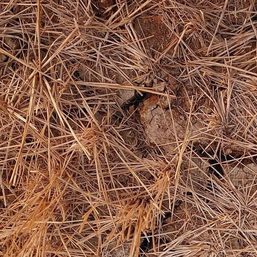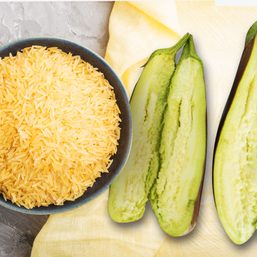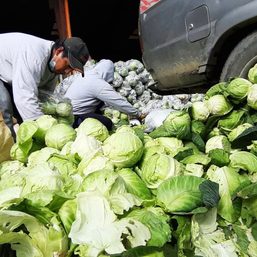SUMMARY
This is AI generated summarization, which may have errors. For context, always refer to the full article.

MANILA, Philippines – Department of Justice (DOJ) Secretary Jesus Crispin “Boying” Remulla said his agency will build an economic sabotage case against so-called cartels behind onion smuggling in the country.
Briefing reporters on Thursday, July 6, Remulla said the DOJ is collating enough information to file the necessary case.
“We’re looking at all the minutes now of the congressional hearings and of course, we will look at our own notes to be able to put together a good case of economic sabotage against those who insist on creating a cartel within the country, which is definitely against the law,” the DOJ chief said.
On July 4, President Ferdinand Marcos Jr., who concurrently heads the Department of Agriculture (DA), ordered the DOJ and the National Bureau of Investigation (NBI) to probe into the so-called cartels, including smuggling and hoarding agricultural products. In response, the DOJ said the Anti-Agricultural Smuggling Task Force will be created, along with a special team of prosecutors, to focus on the issue.

Remulla, who just returned from his 10-day wellness leave, said the DOJ and the NBI had prior studies about onion smuggling. The DOJ chief said “they have an idea how it [smuggling] happens,” and tasked DOJ Undersecretary Jesse Hermogenes Andres and Senior Deputy State Prosecutor Richard Fadullon to come up with a plan to address smuggling.
“In fact, last year, no’ng naghi-hearings sa House, nakapag-test buy pa nga ang NBI in Cebu. Na-locate namin kung sino nagtatago sa Cebu ng supply. So nakita talaga namin ‘yung ano, ‘yung organization nito at work (In fact, during House hearings last year, the NBI was able to test buy in Cebu. We were able to locate who hoards the supply in Cebu. We saw the organization at work),” Remulla said.
On the extent of the smuggling network, Remulla said the cartels have assigned personnel from the production fields to control the supply even from there. The DOJ chief said some cold storage facilities, warehouses, and middlemen are also involved in the operations.
Remulla said some names – which he did not disclose – are now floating as they look into the smuggling operations: “Pero (But), there are around six or seven names that come out when we look at the whole picture. So we have a very good idea, we just have to catch them in the act.”
The DOJ chief said the names are the same ones that floated during congressional hearings.
In early 2023, onion prices had surged, prompting various probes and hearings. According to the DA’s price monitoring date, local red and white onions were sold for up to P600 in local markets, back in January. The said prices were 607% more costly than the international average, which was only around P84.87 at that time.
What’s economic sabotage?
Section 3 of Republic Act No. 10845 or Anti-Agricultural Smuggling Act of 2016 states that large-scale agricultural smuggling as economic sabotage means: “The crime of large-scale agricultural smuggling as economic sabotage, involving sugar, corn, pork, poultry, garlic, onion, carrots, fish, and cruciferous vegetables, in its raw state, or which have undergone the simple processes of preparation or preservation for the market, with a minimum amount of one million pesos (P1,000,000.00), or rice, with a minimum amount of ten million pesos (P10,000,000.00), as valued by the Bureau of Customs (BOC).”
The said act could be committed through the importation of products into the Philippines without necessary permits from regulatory agencies, using fake permits, and “transporting or storing the agricultural product subject to economic sabotage regardless of quantity,” among others.
Among the penalties that could be imposed are life imprisonment and a fine twice of the value of the smuggled product against any person who committed the acts laid down in the law’s section 3. – Rappler.com
Add a comment
How does this make you feel?



![[EDITORIAL] Ang tawag ng kasaysayan kay Leila de Lima](https://www.rappler.com/tachyon/2023/11/animated-de-lima-posts-bail-carousel.jpg?resize=257%2C257&crop=315px%2C0px%2C720px%2C720px)





There are no comments yet. Add your comment to start the conversation.